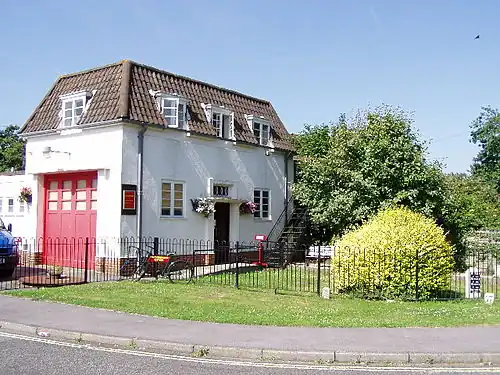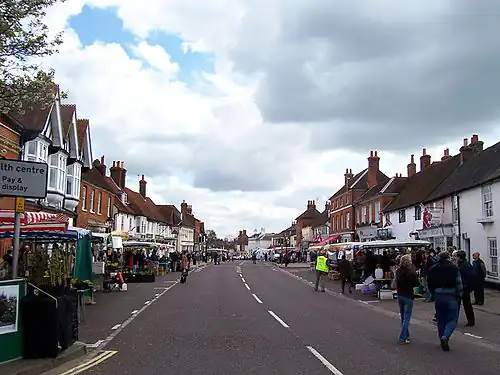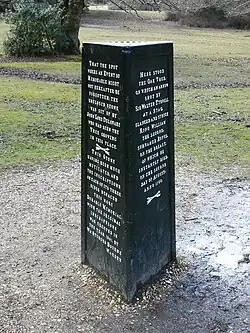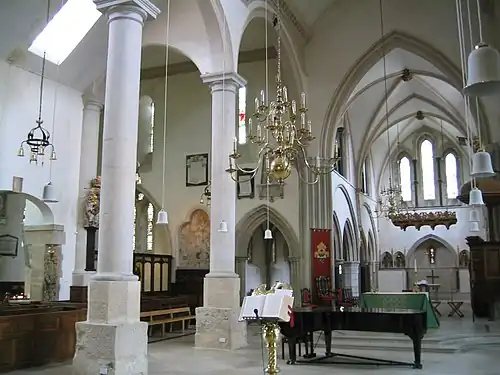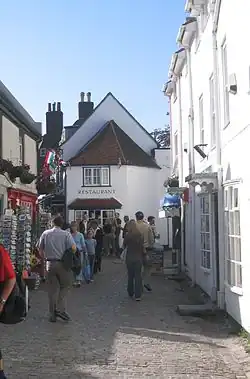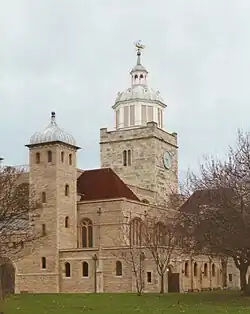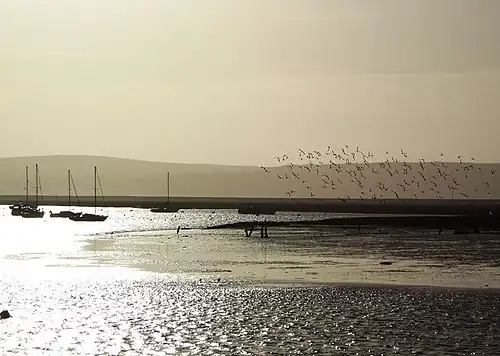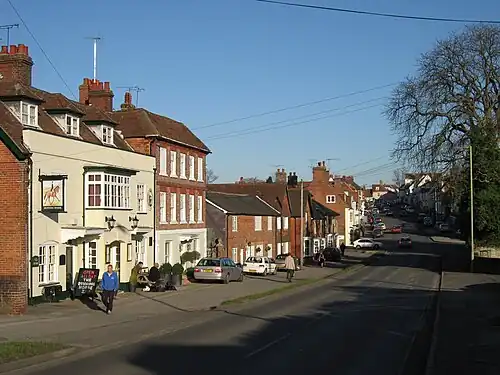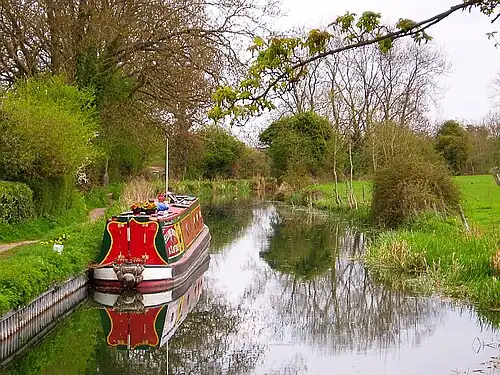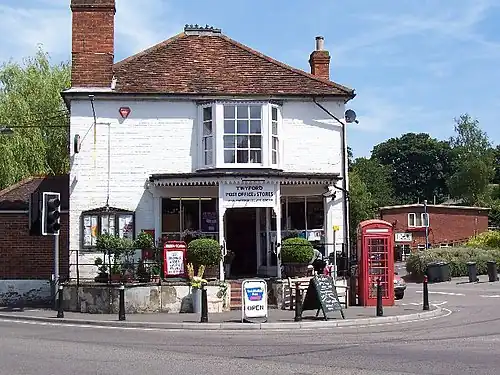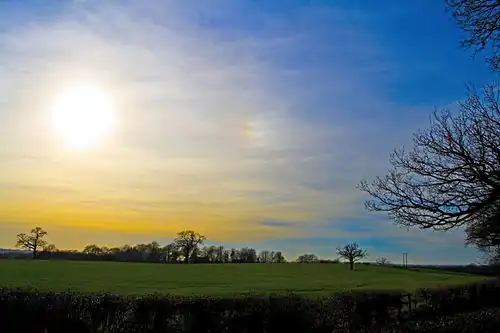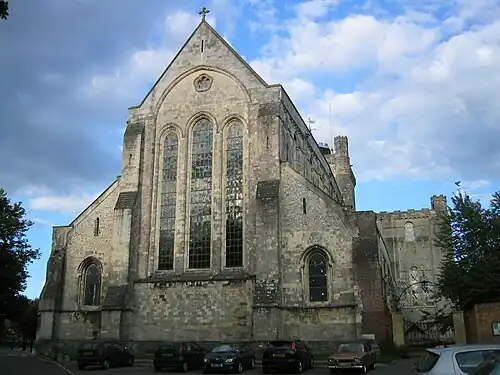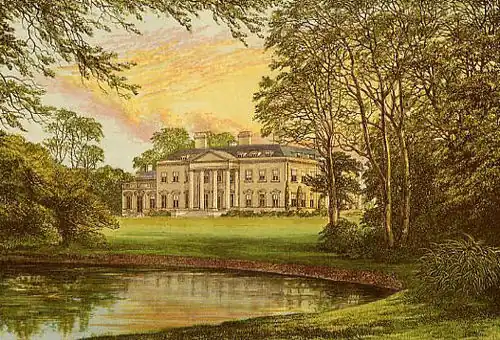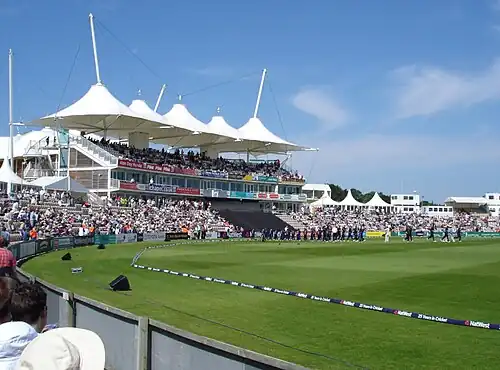Portal:Hampshire
The Hampshire Portal
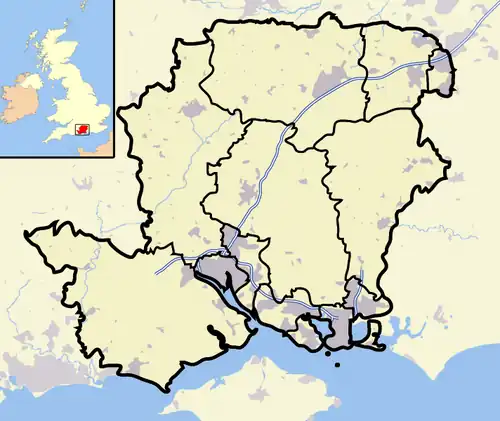
Hampshire (/ˈhæmpʃər/, /-ʃɪər/ ⓘ; abbreviated to Hants.) is a ceremonial county in South East England. It is bordered by Berkshire to the north, Surrey and West Sussex to the east, the Isle of Wight across the Solent to the south, Dorset to the west, and Wiltshire to the north-west. Southampton is the largest settlement, while Winchester is the county town.
The county has an area of 3,769 km2 (1,455 sq mi) and a population of 1,844,245, making it the 5th-most populous in England. The South Hampshire built-up area in the south-east of the county has a population of 855,569 and contains the cities of Southampton (269,781) and Portsmouth (208,100). In the north-east, the Farnborough/Aldershot conurbation extends into Berkshire and Surrey and has a population of 252,937. The next-largest settlements are Basingstoke (113,776), Andover (50,887), and Winchester (45,184). The centre and south-west of the county are rural. For local government purposes Hampshire comprises a non-metropolitan county, with eleven districts, and two unitary authority areas: Portsmouth and Southampton. The county historically contained the towns of Bournemouth and Christchurch, which are now part of Dorset, and the Isle of Wight.
Undulating hills characterise much of the county. A belt of chalk crosses the county from north-west, where it forms the Hampshire Downs, to south-east, where it is part of the South Downs. The county's major rivers rise in these hills; the Loddon and Wey drain north, into the Thames, and the Itchen and Test flow south into Southampton Water, a large estuary. In the south-east are Portsmouth Harbour, Langstone Harbour, and the western edge of Chichester Harbour, three large rias. The south-west contains the New Forest, which includes pasture, heath, and forest and is of the largest expanses of ancient woodland remaining in England.
Settled about 14,000 years ago, Hampshire's recorded history dates to Roman Britain, when its chief town was Venta Belgarum (now Winchester). The county was recorded in Domesday Book as divided into 44 hundreds. From the 12th century, the ports settlements grew due to increasing trade with the European mainland resulting from the wool and cloth, fishing, and shipbuilding industries. This meant by the 16th century, Southampton had become more populous than Winchester. In 20th century conflicts, including World War One and Two, Hampshire played a crucial military role due to its ports. (Full article...)
Selected article
South Stoneham House is a Grade II* listed former manor house in Swaythling, Southampton; the former seat of the Barons Swaythling before the family moved to the nearby Townhill Park House. The building is owned by the University of Southampton, and was used as a hall of residence, part of the Wessex Lane Halls complex.
Originally known as Bishop's Stoneham, the records of the manor date from the 11th century, but the current house was constructed in the early 18th century. It has been attributed to Nicholas Hawksmoor with the gardens and landscaping attributed to Lancelot "Capability" Brown. The house is located close to the River Itchen and Monks Brook and the manor's previous owners include the Willis-Fleming family of nearby North Stoneham and Samuel Montagu, 1st Baron Swaythling.
After Montagu's death in 1911 his son elected to continue living at nearby Townhill Park House, and South Stoneham was sold in 1921 to University College Southampton (now the University of Southampton) for use as student accommodation. In 1964 the building was considerably altered by adding a 17-storey tower and a kitchen and dining complex to the building. The tower was deemed unsuitable for continued use and in 2004 the University submitted plans to demolish it with the intention of converting the original house into a conference venue and building new blocks of flats on the remaining landscaped gardens. The House and tower ceased to be used in 2005 and the House was boarded up in 2009. The University placed the property up for sale in 2015 but failed to find a buyer. The 2020 planning application for demolition of the tower included plans, agreed with Historic England, to build student accommodation and put the Manor House back into active use. The tower was demolished in early 2022. The House remains boarded up, described as 'a pathetic sight' in the new edition of Pevsner's The Buildings of England. (Full article...)
Selected images
Selected biography
Sir Alec Guinness (born Alec Guinness de Cuffe; 2 April 1914 – 5 August 2000) was an English actor. In the BFI listing of the 100 most important British films of the 20th century, he was the single most noted actor, represented across nine films — six in starring roles and three in supporting roles — including five directed by David Lean and four from Ealing Studios. He won an Academy Award, a BAFTA, a Golden Globe and a Tony Award. In 1959, he was knighted by Queen Elizabeth II for services to the arts. He received a star on the Hollywood Walk of Fame in 1960, the Academy Honorary Award for lifetime achievement in 1980 and the BAFTA Academy Fellowship Award in 1989.
Guinness began his stage career in 1934. Two years later, at the age of 22, he played the role of Osric in Hamlet in the West End and joined the Old Vic. He continued to play Shakespearean roles throughout his career. He served in the Royal Naval Reserve during the Second World War and commanded a landing craft during the invasion of Sicily and Elba. Along with Laurence Olivier, John Gielgud and Ralph Richardson, he was one of the great British theatre actors who made the transition to films after the war, making his name in six Ealing comedies, starting in 1949 with both A Run for Your Money and Kind Hearts and Coronets (in which he played eight different characters). He went on to lead roles in 1951 with The Man in the White Suit and The Lavender Hill Mob (for which he received his first Academy Award nomination for Best Actor), then in 1955 with The Ladykillers, and culminating in 1957 with Barnacle Bill.
Guinness collaborated six times with director David Lean: as Herbert Pocket in Great Expectations (1946); Fagin in Oliver Twist (1948); Col. Nicholson in The Bridge on the River Kwai (1957), for which he won both the Academy Award and the BAFTA Award for Best Actor; Prince Faisal in Lawrence of Arabia (1962); General Yevgraf Zhivago in Doctor Zhivago (1965); and Professor Godbole in A Passage to India (1984). In 1970, Guinness played Jacob Marley's ghost in Ronald Neame's Scrooge. He also portrayed Obi-Wan Kenobi in George Lucas's original Star Wars trilogy, which brought him further recognition; for his performance in the original 1977 film, he was nominated as Best Supporting Actor for the Academy Award and Golden Globe. Guinness's later life was closely associated with his definitive depiction of the leading role of George Smiley in the BBC television series Tinker, Tailor, Soldier, Spy and Smiley's People by John le Carré. (Full article...)
Did you know
- ... that Winchester United Church, a place of worship in the City of Winchester District, Hampshire, was built into the walls of the former county jail?
- ... that a Portsmouth building was Grade II-listed because Eric Rimmington painted a mural inside it?
- ... that Commander Samuel Sparshott, who testified at Lord Gambier's court-martial, and Admiral Edward Sparshott, who commanded the 52-gun HMS Winchester, were brothers who served in the Napoleonic Wars?
- ... that Walkelin, Bishop of Winchester, began the construction of the modern Winchester Cathedral in 1079?
- ... that Winchester College football used to be played on top of a hill, with a line of boys on each side to keep the ball from rolling away?
- ... that the first work of fan fiction featuring a romantic relationship between the Winchester brothers in Supernatural was published one day after the first episode aired?
Related portals
Subcategories
Topics
More articles: Business in Hampshire | Geology of Hampshire | History of Hampshire | Portsmouth | Recreational walks in Hampshire | Southampton | Winchester
Lists: List of churches in Hampshire | List of further education colleges in Hampshire | List of Parliamentary constituencies in Hampshire | List of places in Hampshire
Recognised content
| This is a list of recognized content, updated weekly by JL-Bot (talk · contribs) (typically on Saturdays). There is no need to edit the list yourself. If an article is missing from the list, make sure it is tagged (e.g. {{WikiProject Hampshire}}) or categorized correctly and wait for the next update. See WP:RECOG for configuration options. |
Featured articles
 Ælfheah of Canterbury
Ælfheah of Canterbury Bramshill House
Bramshill House Southampton Cenotaph
Southampton Cenotaph Chandler's Ford shooting
Chandler's Ford shooting Droxford railway station
Droxford railway station Ecgberht, King of Wessex
Ecgberht, King of Wessex Frank Jenner
Frank Jenner John Leak
John Leak Mary Rose
Mary Rose Netley Abbey
Netley Abbey New Forest pony
New Forest pony Portsmouth War Memorial
Portsmouth War Memorial Robert Roberts (writer)
Robert Roberts (writer) Tichborne case
Tichborne case HMS Warrior (1860)
HMS Warrior (1860) The World Before the Flood
The World Before the Flood Murder of Joanna Yeates
Murder of Joanna Yeates
Featured lists
Good articles
 A303 road
A303 road All Saints' Church, Southampton
All Saints' Church, Southampton Battle of Alton
Battle of Alton Andover F.C.
Andover F.C. Architecture of Winchester College
Architecture of Winchester College Arthur, Prince of Wales
Arthur, Prince of Wales Jane Austen
Jane Austen Bentworth
Bentworth Henry Biard
Henry Biard Binsted
Binsted Bournemouth
Bournemouth Bradley, Hampshire
Bradley, Hampshire Calshot Castle
Calshot Castle Christchurch, Dorset
Christchurch, Dorset Danebury
Danebury Murder of Teresa De Simone
Murder of Teresa De Simone Tom Denning, Baron Denning
Tom Denning, Baron Denning East Worldham
East Worldham 1900 FA Cup final
1900 FA Cup final 1902 FA Cup final
1902 FA Cup final 1952 Farnborough Airshow crash
1952 Farnborough Airshow crash Murder of Céline Figard
Murder of Céline Figard Charles Fryatt
Charles Fryatt Germanus of Winchester
Germanus of Winchester Jack Hobbs (footballer)
Jack Hobbs (footballer) Hurst Castle
Hurst Castle Itchen Navigation
Itchen Navigation Medieval Merchant's House
Medieval Merchant's House Medstead
Medstead Netley Castle
Netley Castle North Downs Line
North Downs Line Notions (Winchester College)
Notions (Winchester College) Oakhanger, Hampshire
Oakhanger, Hampshire Plegmund
Plegmund Portsmouth
Portsmouth Queen Mary 2
Queen Mary 2 River Rother, West Sussex
River Rother, West Sussex SeaCity Museum
SeaCity Museum Shalden
Shalden South Stoneham House
South Stoneham House Southampton Castle
Southampton Castle Southampton town walls
Southampton town walls St Andrew's Castle, Hamble
St Andrew's Castle, Hamble St Catherine's Hill, Hampshire
St Catherine's Hill, Hampshire Steep, Hampshire
Steep, Hampshire Twyford Down
Twyford Down HMS Victory
HMS Victory Peter Vincenti
Peter Vincenti West Worldham
West Worldham Winchester College
Winchester College Winchester College football
Winchester College football Winslade
Winslade
WikiProjects
- WikiProject Hampshire
- WikiProject England
Things you can do
Nominate for selection:
- Articles
- Pictures
- Biographies
Expand: Abbots Worthy | Cadnam | Chartwell Green | List of churches in Hampshire | Deane, Hampshire | East Hampshire | Farnborough Airfield | Geography of Gosport | Micheldever | Monks Brook | More...
Create: Baddesley Manor | Chilworth Manor (currently a redirect) | Gosport and Fareham Omnibus Company
Find references for: Accord of Winchester | Aldershot | Alton, Hampshire | Alverstoke | Andover, Hampshire | Arthur Wellesley, 1st Duke of Wellington | Bedales School | Bitterne Park School | Boyatt Wood | Brenda Rawnsley | Brian Murphy (actor) | Brockenhurst | C. B. Fry | Calleva Atrebatum | Cantell Secondary School
Associated Wikimedia
The following Wikimedia Foundation sister projects provide more on this subject:
-
Commons
Free media repository -
Wikibooks
Free textbooks and manuals -
Wikidata
Free knowledge base -
Wikinews
Free-content news -
Wikiquote
Collection of quotations -
Wikisource
Free-content library -
Wikiversity
Free learning tools -
Wikivoyage
Free travel guide -
Wiktionary
Dictionary and thesaurus
-
 List of all portals
List of all portals -

-

-

-

-

-

-

-

-

-
 Random portal
Random portal -
 WikiProject Portals
WikiProject Portals

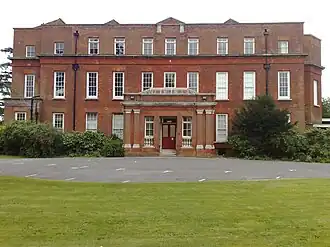
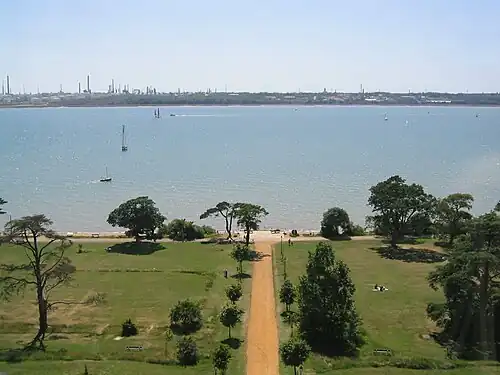
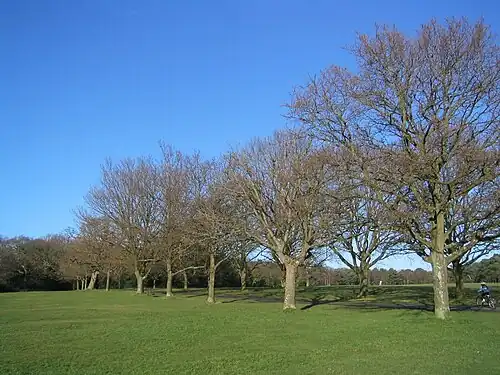
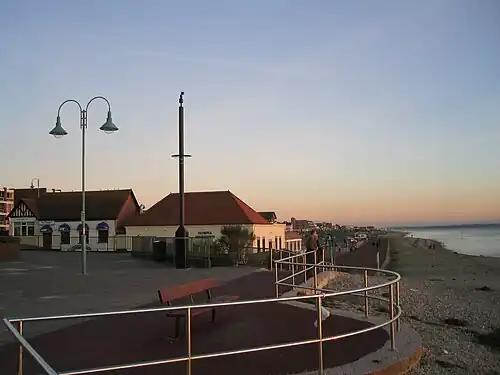

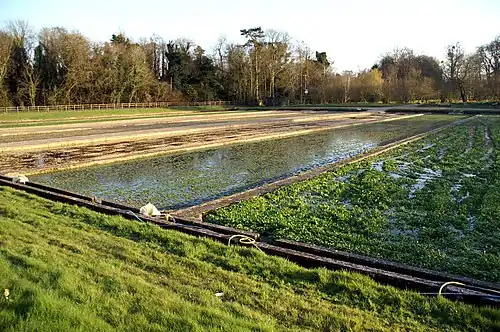

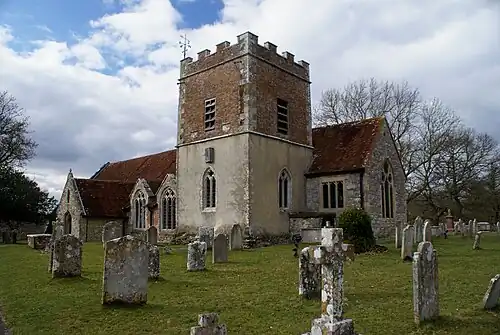
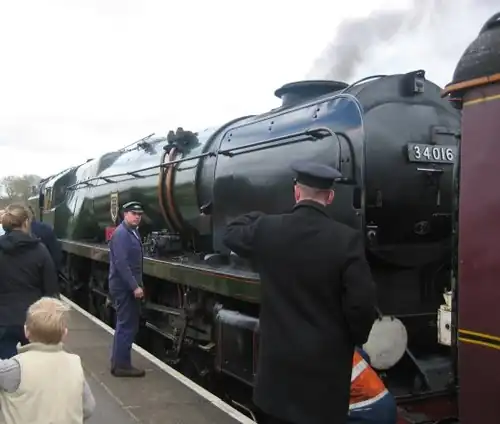
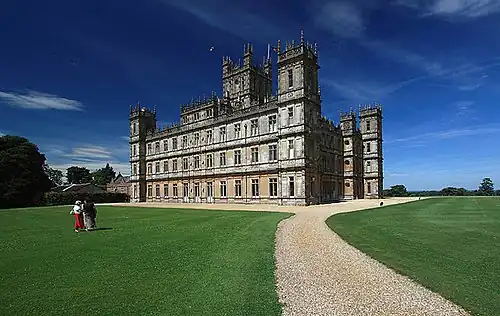

Apr2006.jpg)
